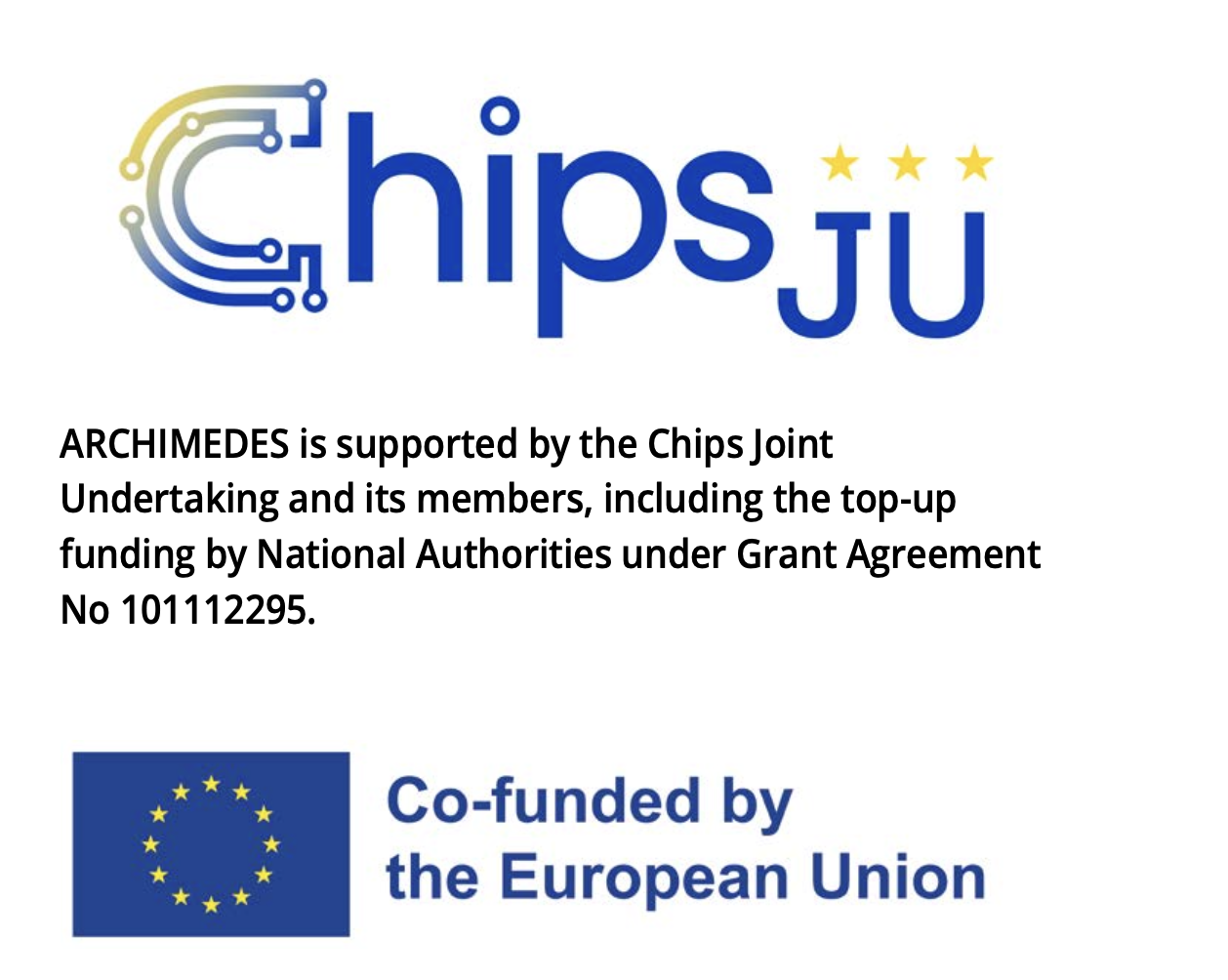Reiner John, Coordinator Research Funding Corporate Strategy at AVL List, examines how the ARCHIMEDES project ensures an extended ECS lifetime with digital means and fosters a circular economy
In the face of climate change, we need urgent action in the transition towards cleaner energy in transportation, infrastructure, and power. Electronic components and systems (ECS) currently last around 8,000 hours, but a longer lifespan of up to 120,000 is required.
The ARCHIMEDES project is dedicated to transforming how ECS are qualified, ensuring a trusted extended lifetime throughout the entire supply chain. This initiative will impact the semiconductor, automotive, aviation, and infrastructure sectors by advancing technologies that boost resource efficiency and prolong the life of essential systems.
By achieving these goals, ARCHIMEDES contributes to building a greener, more secure, and energy-independent future for all. The project – co-funded by the European Commission and the Chips Joint Undertaking (Chips JU) – focuses on the challenges mentioned above within the circular economy model.
ARCHIMEDES builds trust
Modern, fully electric cars with new features and applications are required to sustain a much more demanding category of mission profiles. Those are based on connection (on/off/ bidirectional) to the grid, the Cloud, or the battery. This implies much higher operation times and case-by-case environmental conditions. Classic product qualification methods have difficulty proving these extended lifetimes by accelerated lifetime stress tests while keeping the test time and cost within the same range. In the EU-funded ARCHIMEDES project that began in 2023, mission profiles and a proposed formalisation, failure mechanisms, including wide-bandgap materials and concepts on how to overcome the shortcomings of conventional qualification tests – containing predictive maintenance methods, case-by-case evaluation and prediction of remaining useful lifetime, AI-based analytics, digital twins, robust sensing – are investigated to build trustable long-life ECS with high expectations. All while fertilising with avionics and infrastructure supply chain practices.
ARCHIMEDES vision for ECS lifetime extension
The vision of the ARCHIMEDES project is to be the first to deliver an increase of up to 15 times in a trusted ECS lifetime. This necessitates extending the lifetime from 8,000h to 120,000h, as required in future electric vehicles in the automotive domain, and market readiness to accelerate the innovation cycles in energy efficiency and energy transition.
The ARCHIMEDES results will ensure quality in lifetime by prognostics and health management (disruptive perception change to monitor and manage quality and state of health in operation).
Last but not least, half the time to market will be achieved by novel design cycles and defined standards for new generations of consumer products that support the energy transition. A fast introduction of technologies and products and disruptive qualification concepts for a highly extended trusted lifetime to enable economy of scale.
ARCHIMEDES project objectives
ARCHIMEDES project has ambitious objectives for the upcoming development cycles. One of the foremost objectives is the effort towards a new era of technological advances that will realise trusted extended lifetime and mean time between failures (MTBF) for gallium nitride (GaN), Silicon Carbide (SiC), micro-electromechanical systems (MEMS) monitored by an ultra-stable quantum reference. Each technology development in this project aims to reach up to 120,000 hours of ECS lifetime.
The second objective of ARCHIMEDES is to deliver eco-design-based technological breakthroughs that will lead to deploying digital assets and services for ECS to monitor extended lifetime.
This is followed by an objective to deploy efficient mechanisms that will facilitate and enable Standardisation and Qualification Procedures to foster an economy of scale.
This will help realise an accelerated energy transition in automotive, infrastructure, and aviation. It will also create solid links toward a pan-European ecosystem exploiting power electronics in a new era in these three complementary industries.
Last but not least, ARCHIMEDES aims to ensure tools, technologies, and mechanisms are deployed that will strengthen Europe’s competitiveness for a resilient and cyclic economy.
ARCHIMEDES and Circular Economy
As mentioned earlier, the vision and objectives of the ARCHIMEDES project are all geared towards the large-scale realisation of a circular economy model. The ARCHIMEDES project is at the forefront of this evolution, driven by the vision of realising trusted extended lifetimes and elevating mean time between failures (MTBF) to competitive levels and beyond.
By harnessing the intrinsic properties of GaN and SiC alongside the precision of MEMS devices, the project partners engineer ECS capable of enduring the rigours of time and environment efficiently. Integrating an ultra-stable quantum sensor ensures precise monitoring, enabling proactive maintenance and fault prediction. These advancements are not just about enhancing performance; they are about fundamentally reshaping the landscape of reliability of ECS.
Fostering a circular economy
In pursuing technological excellence, the ARCHIMEDES project aims for longevity and sustainability. With the overarching goal of fostering a circular economy, the project’s advancements in GaN, SiC, MEMS, and quantum sensing represent a paradigm shift towards environmentally conscious innovation. By extending the lifetime and bolstering the reliability of ECS, the consortium is reducing the need for frequent replacements and minimising electronic waste.
ARCHIMEDES’ commitment to sustainability is woven into the core of our technological advancements. The project envisions a future where reliability and environmental responsibility go hand in hand, where every component is designed to last and contribute to a more sustainable world.
Pushing the limits of engineering
As ARCHIMEDES pushes the boundaries of reliability and sustainability in electronic systems, our project sets a bold target: 120,000 hours of lifetime for electronic components and systems. This ambitious objective is not just a benchmark but a testament to the transformative potential of GaN, SiC, MEMS, and the quantum sensor. By leveraging these advanced technologies, this project is extending the lifespan of electronic devices and redefining the very notion of reliability.
Achieving this milestone will push the limits of engineering and unlock new possibilities for industries, economies, and the planet. With each technological advancement, ARCHIMEDES is inching closer to a future where electronics not only endure but thrive, paving the way for a circular economy where waste is minimised, sustainability is paramount, and a secure and resilient society is a reality.
DISCLAIMER: Funded by the European Union. Views and opinions expressed are, however, those of the author(s) only and do not necessarily reflect those of the European Union or the granting authority. Neither the European Union nor the granting authority can be held responsible for them.


This work is licensed under Creative Commons Attribution-NonCommercial-NoDerivatives 4.0 International.


